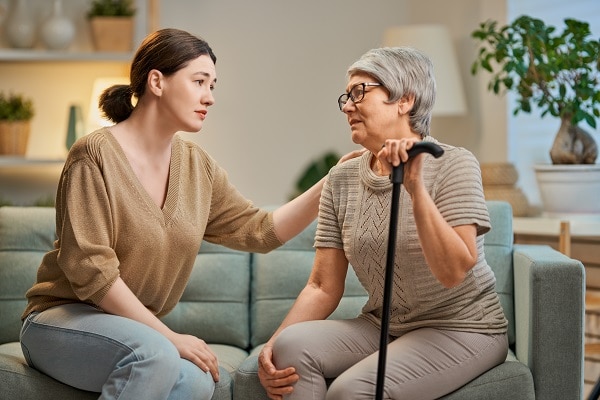As people age, they are at a higher risk of developing Alzheimer’s disease. While there is no definitive sign or symptom of Alzheimer’s, some common early warning signs can indicate the onset of the disease. If you notice any of these signs in yourself or an elderly loved one, it is essential to seek medical help as soon as possible. This article will discuss some of the warning signs you should be aware of.
Contents
Constant Memory Loss

As we age, most of us will experience some memory loss. This may be normal and is usually nothing to worry about. However, memory loss is prevalent with aging. In many cases, as people grow older, they may gradually forget certain pieces of information. In the case of Alzheimer’s disease, memory loss comes in a more drastic form and can occur suddenly without any other symptoms. A good way to tell if memory loss is due to normal aging versus Alzheimer’s is to compare the memory loss with other family members around the same age.
Changes In Mood And Personality

Alzheimer’s and other forms of dementia can cause people to become depressed and irritable. These changes may go unnoticed initially due to forgetfulness affecting their ability to express these feelings. However, as Alzheimer’s progresses, it is challenging for someone suffering from the disease to be aware of how they are feeling or why they are acting differently than usual. This can also cause them to experience anxiety, paranoia, and delusions. For example, some may think they are being watched or accused unfairly. Others might start breaking into destructive behaviors without knowing why.
Asking Repetitive Questions

When a person with Alzheimer’s becomes more advanced in age, they will sometimes ask repetitive questions about things that occurred earlier that day or even earlier that week. If you find yourself answering the same questions over and over again, this may be a sign that your loved one has Alzheimer’s dementia. It can be a draining experience to answer the same questions repeatedly because it makes you feel like you are constantly being pestered, but try to stay patient with your loved one.
Sudden Outbursts

Another sign of Alzheimer’s disease that you are likely to notice is outbursts for no reason at all. This can be very challenging for caregivers to manage. As Alzheimer’s progresses, the person might start feeling anxious or scared without any reason. They could end up screaming and yelling at you like they are furious about something that makes no sense. This is because their thought process has become impaired, making it difficult to understand a situation logically.
Difficulty Writing

When a disease affects the brain, it is said to have cognitive effects. One of these can be trouble with concentration or an inability to focus on one task for very long. This typically occurs in the later stages of Alzheimer’s and is sometimes accompanied by physical signs such as tremors. For example, people might have difficulty holding a pen or pencil correctly when this occurs. Poor handwriting caused by this symptom reflects their loss of fine motor skills, affecting other parts of the body, including hand movements and swallowing difficulties.
Loss Of Appetite

When a person starts losing their appetite due to Alzheimer’s disease, they will take more extended periods between meals and sometimes only eat small portions when they do have something to eat. This is common in the earlier stages of the disease because people might forget about eating altogether or overcompensating over other problems. However, as Alzheimer’s progresses into later stages, this hunger issue can prevent them from maintaining an appropriate weight, making them more susceptible to additional health issues.
Conclusion
Alzheimer’s disease is a degenerative disease that slowly destroys your loved one’s memory, thinking skills, and even the ability to carry out daily activities. There are various symptoms associated with Alzheimer’s, and you might have experienced some in the past. Regardless of this, it is best to seek medical advice if you are concerned about your elderly loved ones or family members for any reason. This disease can be scary, so it is best to try and notice warning signs as soon as possible.


